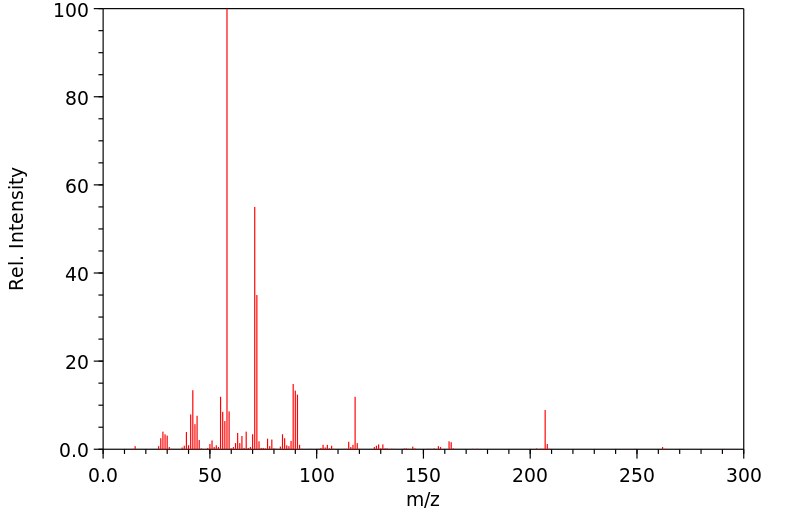毒理性
◉ 母乳喂养期间使用总结:目前没有关于在母乳喂养期间使用环戊醇的信息。抗胆碱药可能会干扰母乳喂养。单次剂量的眼科环戊醇不太可能干扰母乳喂养;然而,在长期使用期间,观察婴儿是否有泌乳减少的迹象(例如,不饱,体重增长不良)。为了显著减少使用眼药水后到达母乳中的药物量,可以在眼角处对泪囊施加压力1分钟或更长时间,然后用吸水纸去除多余的溶液。
◉ 对哺乳婴儿的影响:截至修订日期,没有找到相关的已发布信息。
◉ 对泌乳和母乳的影响:抗胆碱药可以在动物中抑制泌乳,显然是通过抑制生长激素和催产素的分泌。抗胆碱药也可以减少非哺乳妇女的血清催乳素。在已建立泌乳的母亲中,催乳素水平可能不会影响她的哺乳能力。
◉ Summary of Use during Lactation:No information is available on the use of cyclopentolate during breastfeeding. Anticholinergic drugs might interfere with breastfeeding. A single dose of ophthalmic cyclopentolate is not likely to interfere with breastfeeding; however, during long-term use, observe the infant for signs of decreased lactation (e.g., insatiety, poor weight gain). To substantially diminish the amount of drug that reaches the breastmilk after using eye drops, place pressure over the tear duct by the corner of the eye for 1 minute or more, then remove the excess solution with an absorbent tissue.
◉ Effects in Breastfed Infants:Relevant published information was not found as of the revision date.
◉ Effects on Lactation and Breastmilk:Anticholinergics can inhibit lactation in animals, apparently by inhibiting growth hormone and oxytocin secretion. Anticholinergic drugs can also reduce serum prolactin in nonnursing women. The prolactin level in a mother with established lactation may not affect her ability to breastfeed.
来源:Drugs and Lactation Database (LactMed)








